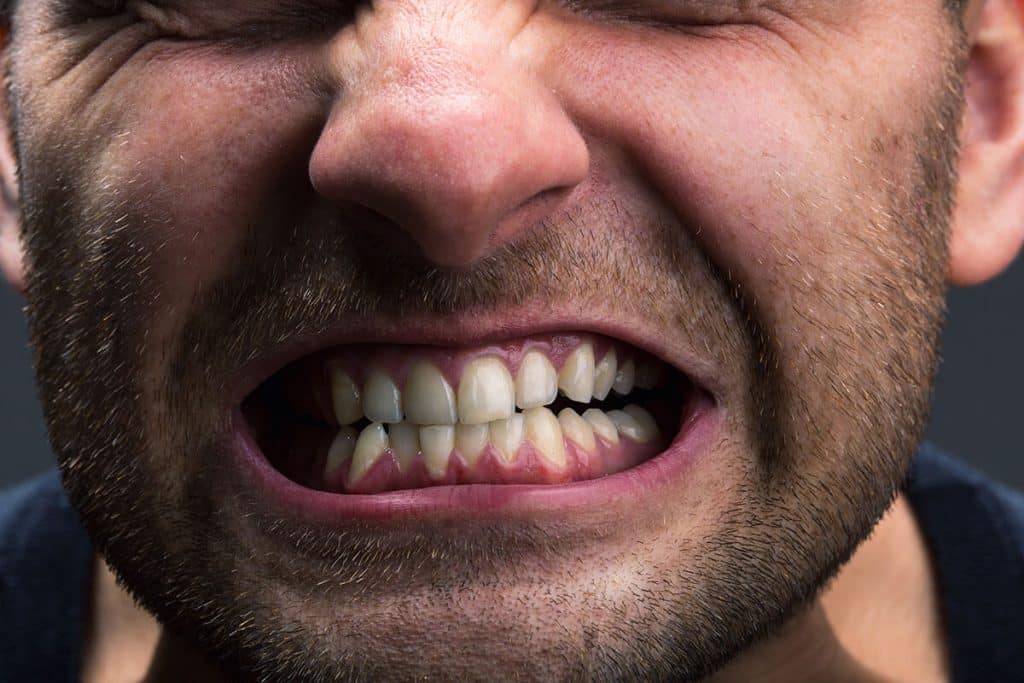Grinding Teeth? Here’s What You Should Know

Teeth grinding, or bruxism, is an extremely common but unhealthy habit. It is most common during sleep, but it may also happen when concentrating hard, lifting heavy objects, or even driving. You may not know that you are grinding, or you may know but feel unable to stop. Here is what you should know about this often painful, tooth-damaging habit.
Symptoms
Bruxism is often linked to TMJ (temporomandibular joint disorder), and the two share similar symptoms. Every case of teeth grinding is unique, but most people experience some or all of the following symptoms:
- Earaches
- Enlarged facial muscles
- Fractured teeth
- Headaches
- Jaw pain
- Loss of tooth enamel
- Sleep problems
- Sore teeth or gums
- Stiff neck or shoulders
- Unusual wear patterns on teeth
Causes
In addition to TMJ, teeth grinding is linked to many conditions, including stress and anxiety, sleep apnea, and snoring. Smokers, heavy alcohol or caffeine users, and those suffering from depression are also more likely to experience bruxism.
Risks
Teeth are strong, but they are not built to withstand constant grinding. Over time, grinding weakens the teeth and damages the enamel. Those who grind their teeth are at higher risk for cavities, tooth decay, breakage, and even tooth loss.
Grinding is also hard on the jaw. Pain, especially when chewing, and difficulty opening and closing the mouth are common among those with bruxism.
Treatment Options
Your dentist will carefully assess your symptoms, looking for signs of the root cause of grinding. It is best to treat underlying conditions, such as anxiety or sleep apnea, at the same time.
You may receive an occlusal appliance, such as a bite plate or night guard, to wear over your teeth at night. This prevents direct contact between the top and bottom teeth, protecting them from damage. If you have sleep apnea, you may need to use a different appliance overnight. A mandibular advancement device is designed to keep the lower jaw forward, preventing airway collapse while guarding the teeth.
Stress and anxiety-induced teeth grinding can be treated with behavior modification techniques in tandem with an occlusal appliance. Meditation, purposeful relaxation, and increased awareness of grinding behavior can help you learn to stop grinding.
Teeth grinding is common, but it can wreak havoc on your teeth and jaws. Fortunately, it is also highly treatable. If you notice symptoms of grinding, tell your dentist as soon as possible.
